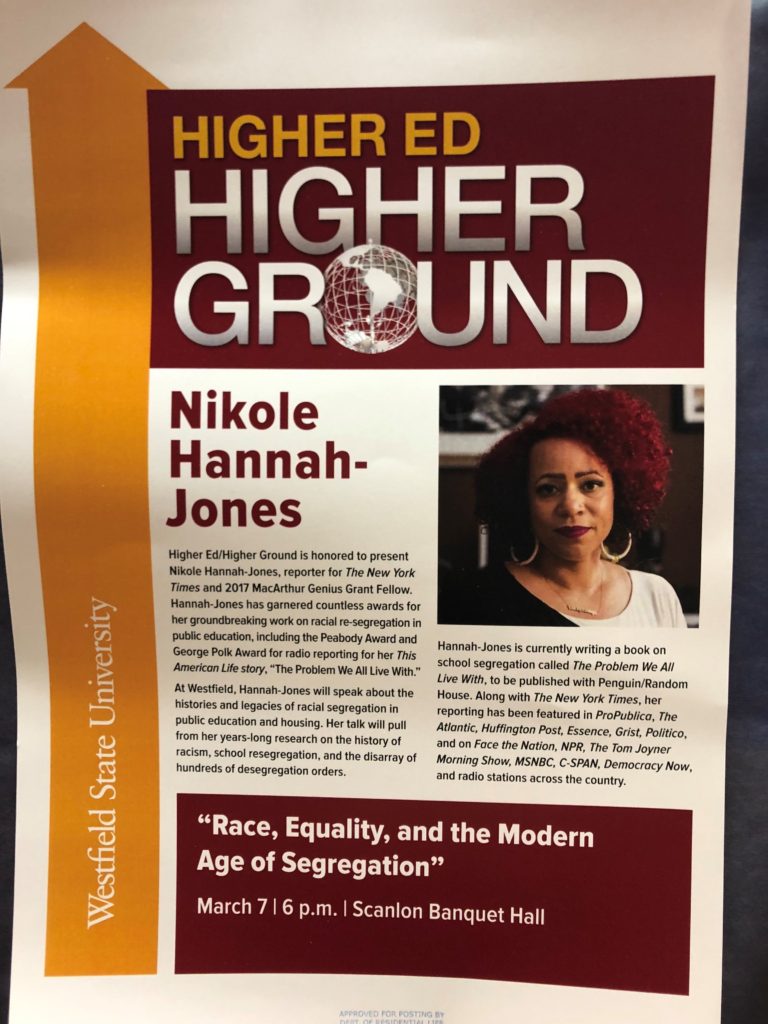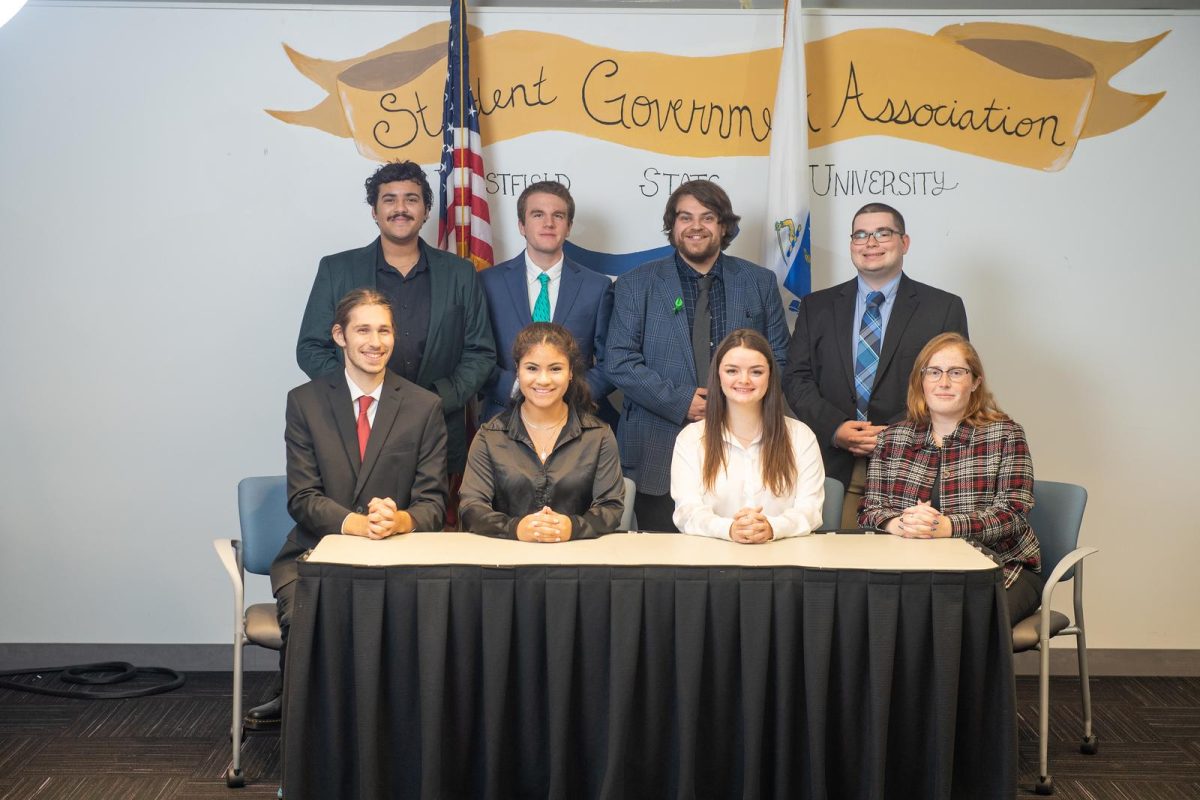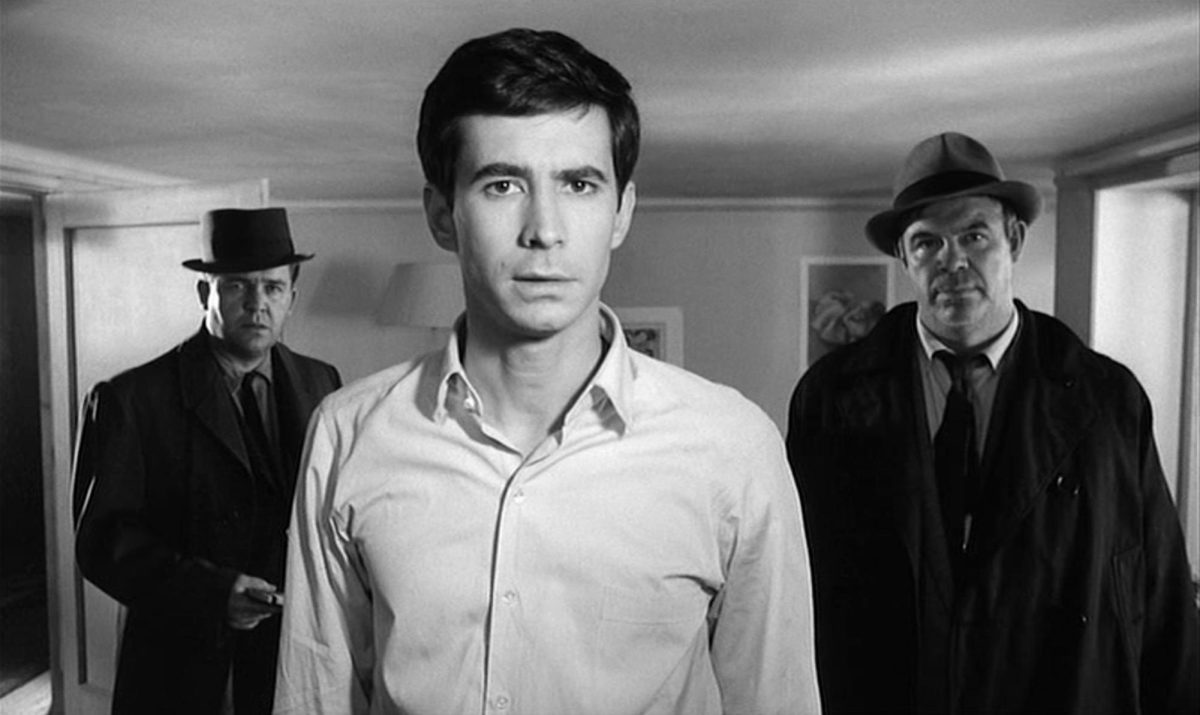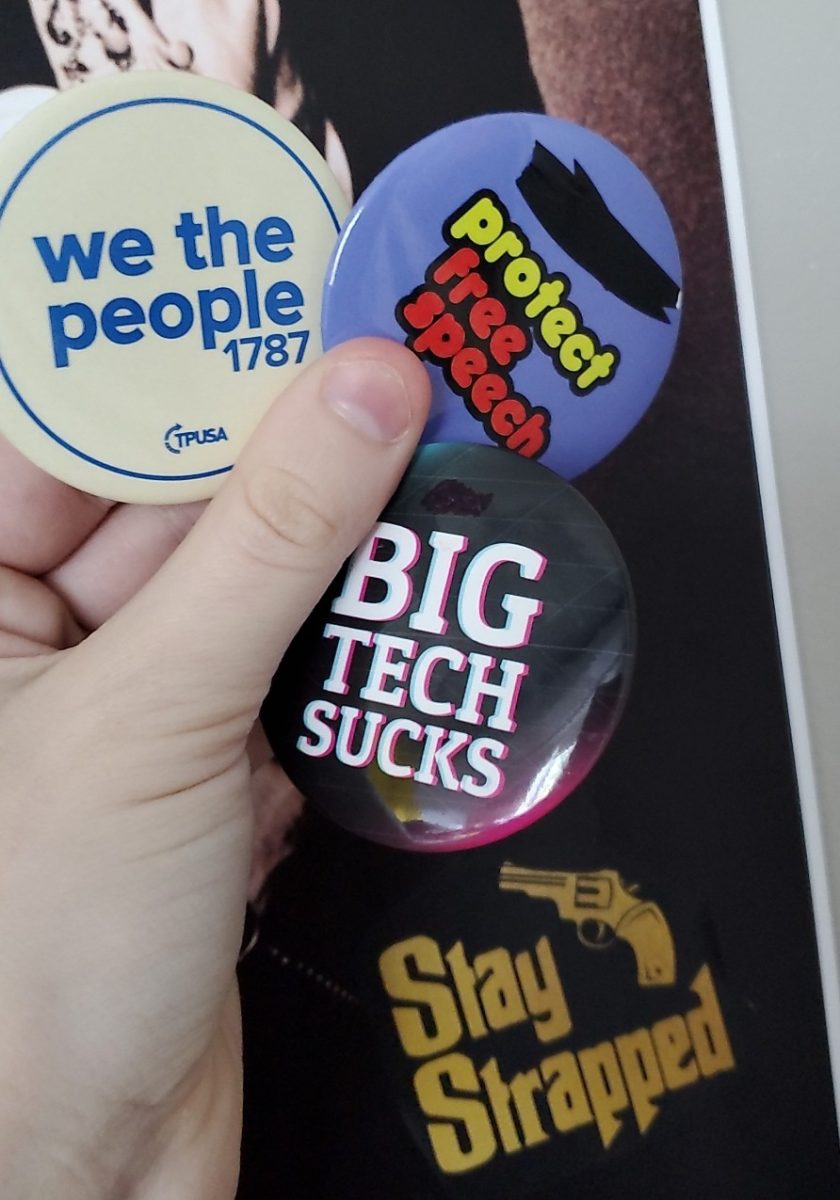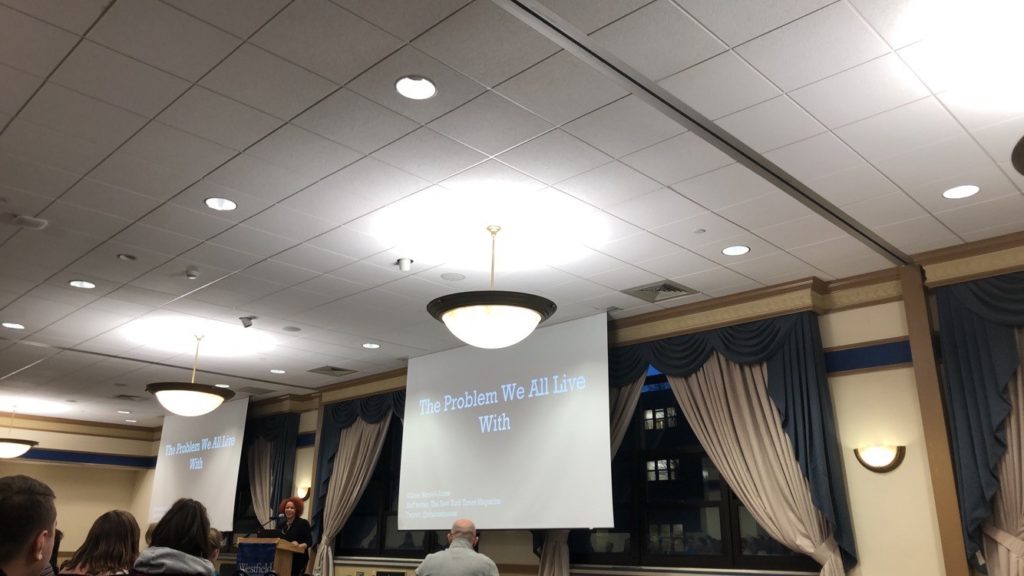
As a senior at Westfield State, I can say that one of the unique things about college is that you get to go to free events such as poetry readings, book readings from published authors, and prominent speakers that come to campus to talk about timely issues that center around race, gender and notions of identity.
On March 7, I attended a talk by New York Times reporter Nikole Hannah-Jones, known for her groundbreaking work on racial-resegregation in public education. She was the 2017 MacArthur Genius Grant Fellow, along with winning a Peabody Award and the George Polk award for radio reporting for her appearance on the podcast, This American Story, in a section called, “The Problem We All Live With.” She came to campus to talk about the decision to send her daughter to a segregated school in the Bronx instead of a school where she would but one of a few black or Latino students among mostly white classmates.
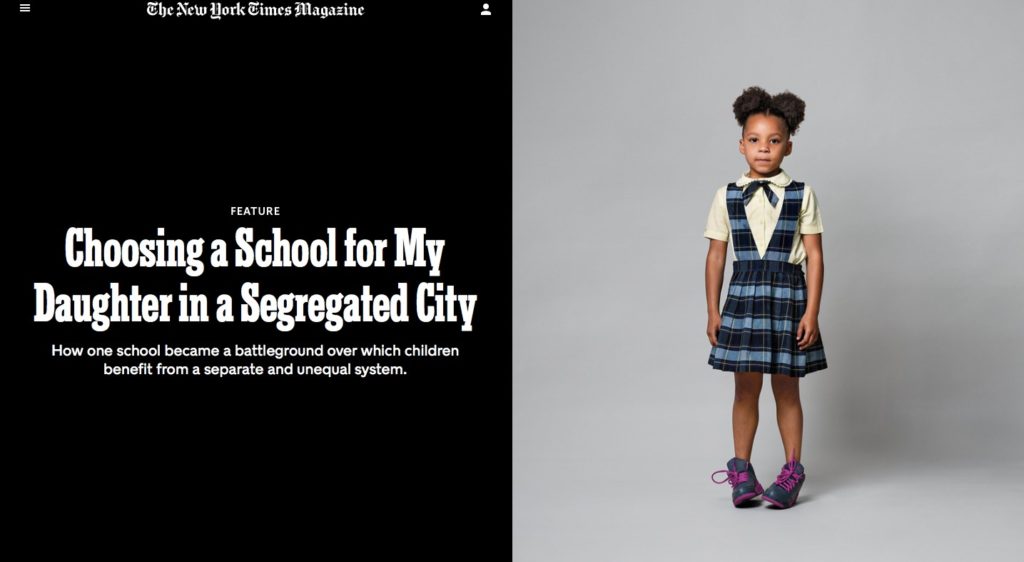
Her article for the Times, Choosing a School for My Daughter in a Segregated City, was controversial. Parents crucified her for intentionally not sending her to the best possible school. But Hannah-Jones argued for the children in the segregated schools and how they seem to be “sacrificed” in order for other kids to be able to get a better education at a different school. She questions what makes it okay for some children to get a lesser-funded education while other parents push for the best possible education for their kids. She showed us extensive research on how people who don’t get a good education will have long-term problems in life.
So why would she send her daughter there? Hannah-Jones and her husband went on and on debating this decision – what would be the best for their baby. Hannah-Jones didn’t enroll her child in a segregated city because she was a bad parent. She did this in hopes that we would finally recognize the problem of letting some kids fall on the wayside for the benefit of others’ success.
Without her coming to campus, I would not have this new lens on school re-segregation that I would today. What struck me the most was her point that the North isn’t as progressive as it makes itself out to be. We have this notion that the North is less racist than the South when in fact, we still have schools that are mostly inhabited by black and Latino students and others such as prep schools that are only filled with white students that had the money to be there. She showed us statistics from schools right here in Western Mass such as Central High School in Springfield and Holyoke High School, both very poor schools with a high number of Black and Latinx students. Institutional racism is something that was not solved in the ‘60s by Brown v. Board and we need to take a hard look at what is happening right next to us.
She makes the essential point that black students aren’t the only ones that suffer from segregation – we all do. When white students only see white students in the hallways, they are also not getting a multicultural lens on the world. They do not receive the same array of perspectives that a fully integrated school has.
I learned so much from this talk alone and I would advocate that these talks are integral for students to become well-rounded individuals. These talks about racism are places where criminal justice majors can learn about the biased system we live in and become better police officers in an age of movements such as Black Lives Matter. These talks are intriguing and make you think about things you might not have in class if you are not majoring in the humanities.
Personally, college made me see the full scope of racism in our country in a way I didn’t in high school which I now realize is something that needs to be taught much much earlier. Luckily, I am an English major and am fully engulfed with social justice, but for different majors that want a more sophisticated look at the world, they can see a flyer for one of these events and come free of charge. Because of Higher Ed Higher Ground, led by Professor Shirley Wong, that bring these speakers in, the students of Westfield State became more humane, just individuals.
So, I strongly advocate for continued and increased funding for these talks that call the attention of my colleagues and I, on the travesties that happen around us that we may be blind to.
To stay informed about upcoming events, please visit https://www.westfield.ma.edu/higher-ed-higher-ground. To suggest a speaker, please email Professor Wong at [email protected].




















